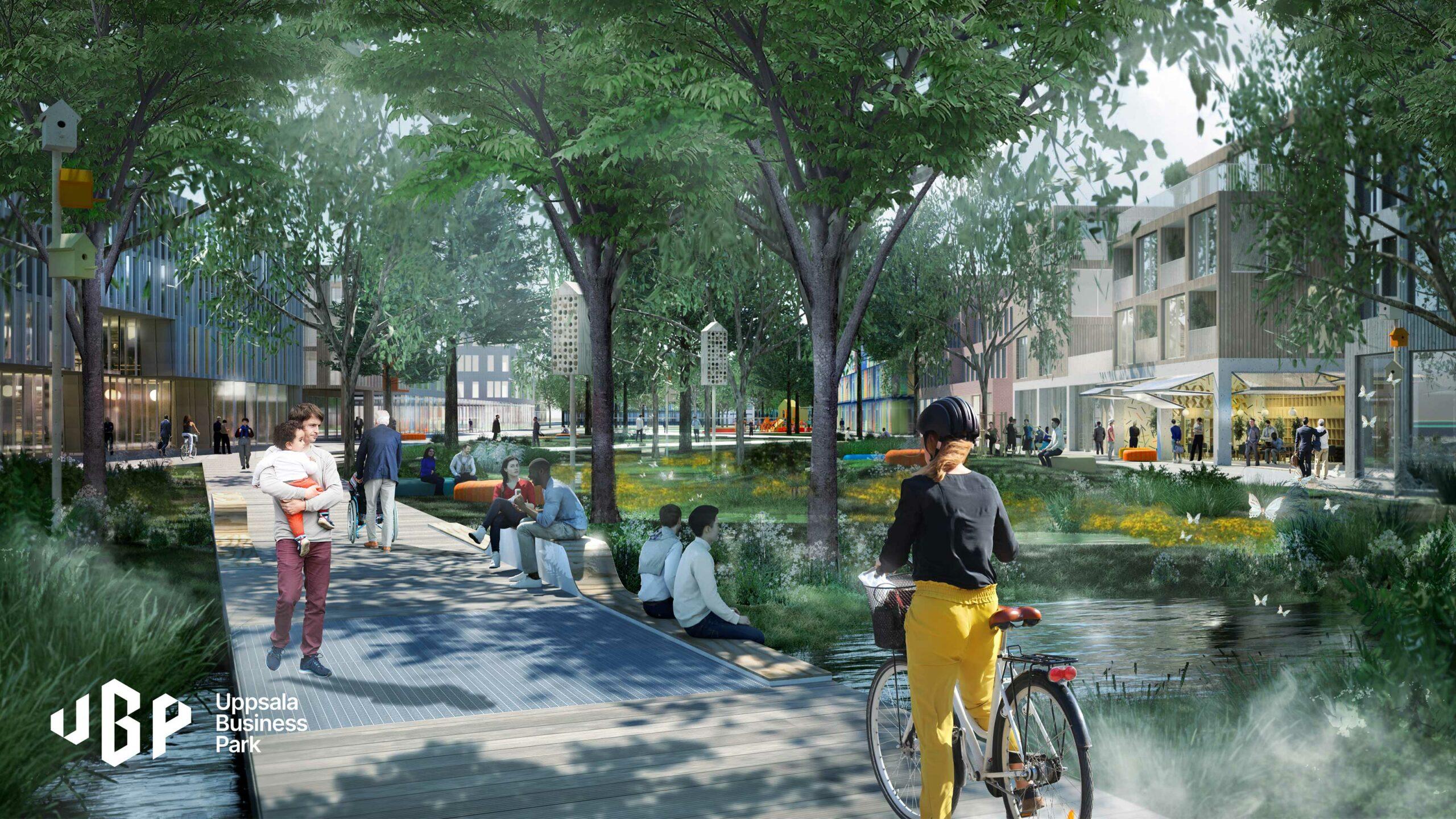Illustration: Uppsala Business Park, Mandaworks for Corem
As part of the Net Zero programme, the NLA brought together speakers from the public and private sector to discuss the impact of COP 26 one year on, chaired by Tor Burrow, Executive Director of Sustainability & Innovation, Grosvenor Property UK.
Sean Lockie, Associate Director at Arup, gave an overview of COP- from the Paris Agreement adopted at COP 21 (2015), to limit global warming to well below 2 degrees Celsius compared to pre-industrial levels, to the tightened goals agreed at COP 26 in Glasgow to ‘keep 1.5 alive’, and the focus for COP27 in Egypt (Nov 2022); to show how the goals can ‘work for all’. Sean described the difficulty in translating the high-level discussions at COP into tangible language at a community level and clarity for industry to invest. He presented Arup’s decarbonisation action plan for Waltham Forest developed using their three-R’s approach: Reduce, Restore, Remove, and local community engagement.
COP 26 had great rhetorical power, focusing national conversations onto issues of sustainability, and inciting pledges, from Local Authorities and across the construction industry. The UK Government made commitments including the Net Zero Strategy: to Build Back Greener with policies to decarbonise all sectors of the economy by 2050, and the Heat and Buildings Strategy, which takes a market-based approach to reducing emissions e.g. by scaling up supply chains for low-carbon heating systems to become mainstream.
